We caught up with the brilliant and insightful Hanna Ainsworth AKA Yocute a few weeks ago and have shared our conversation below.
Alright, Hanna thanks for taking the time to share your stories and insights with us today. We’d love to hear about the things you feel your parents did right and how those things have impacted your career and life.
This is quite the question, and it hits differently as a now first-time mom thinking about how I want to raise my son. Though, I understand that there were circumstances in my upbringing that will never be the case in my child’s life. For one, my parents immigrated from Central America and were on the journey to becoming American citizens when I was growing up. I heard many stories of how quickly my parents had to grow up and take on adult responsibilities. In that sense, both my parents had an “entrepreneurial spirit.” The term entrepreneur has grown to become this romanticized pursuit in America. Whereas in a country like Guatemala or El Salvador and I am sure in early America, entrepreneurism was widespread and has been a means to survival. Entrepreneurialism as defined by the Cambridge Dictionary, “is the ability to start new businesses, especially when this involves seeing new opportunities to make money.” My dad would joke when I was growing up about how he could market and sell sand if he had to. And this joke went along with a story he told us about when he was a young boy. He said there was a time when he would package small bags of special pink sand and sell it to passersby marketing it as a dish scrub. As for my mom, she grew up in a port city, La Libertad, where there was a lot of tourism. At the age of six, she was walking along the shoreline selling shaved ice, mariscos, pupusas and licuados. My grandma told me my mom had persuaded her to start a restaurant and it was by my mother’s own accord that she would venture out to promote it. Grandma told me mama saw opportunities to make money that she could never see on her own.
My parents gave me the ability to see opportunities to make money — which is fundamentally so much of surviving today. Now this may sound odd, one thing my parents did right was that they never gave me an allowance. I did not even know allowances existed till one day a girl in middle school bragged about how her dad gave her $500 to spend at the mall. Mind you, at that time, I was so surprised and absolutely jealous. It was not until years later, after having graduated debt free from undergraduate school at UCLA that I saw the value in what my parents did. I know not giving me an allowance may not have been done intentionally, but simply out of necessity to maintain our financial well-being.
Yet, regardless, I have come to believe that when you give children everything they want or provide an allowance to eventually get what they want – they lose the ability to think creatively how they will generate those means. My dad did not offer to pay for my college education, and I knew very well not to expect him to. Borrowing money? I was taught to work hard for your money and not spend money you do not have. Therefore, mentally, student loans were not even an option for me. I also wanted to go to college for a degree in music. I knew there was no way I was going to get in debt for a degree in music and I told myself if God did not provide a way to pay for school – I would go straight into the workforce. In other words, if it’s His will, it’s His bill. I sought out academic and arts scholarships and was later offered several more that covered the remainder of my educational costs which I later rolled over to pay for graduate school. I also worked a part-time job all throughout my time at UCLA. And used apps like Depop to earn some money for gas, eating out, and other personal expenses.
I cannot tell you how thankful I am now to have been able to earn, save and invest in my career without the fear of having to pay it back in the financial sense. I know so many people who are still paying back their student loans without feeling like they are truly progressing. While the culture in which my generation was raised told us to take out the loan and invest in the “college experience,” I think many of us would probably respond differently now that we are suffering the consequences. The consequence of “buying now” a college education instead of “adding to cart” and evaluating what inventive payment methods we want to use at checkout. My quality of life and career success has been impacted by my parents’ decision not to hand it all on a silver platter and this was done more by example and circumstance than actual intent.
My parents aren’t perfect, but they did a lot of things right. I’ll mention another: they took my early education into their own hands and facilitated my learning through Socratic teaching methods. In doing so, I was raised in a nurturing environment with the freedom to express my thoughts and explore my various interests without peer pressure, distractions or society’s expectations of what a “good living” is. When I went into public high school, I had a strong sense of self and a pretty good idea of what I wanted to do in the future. While I do know I was still developing into my personhood, I was never at a loss for who I was. Sadly, I feel like many people are still trying to figure themselves out because the outside voices are ringing out louder than their inner one. I really do believe children need that strong, foundational presence, encouragement and support that is so difficult to find outside of the home. There is no replacement for mom and dad in a child’s life, filling up their inner arsenal with self-worth and heavy truths. When a child feels confident, secure and loved they feel like they can achieve anything even if it means they need to work hard for it. Seeing my parents work hard and sacrifice so much to love me to the best of their ability makes me want to do the same for me and for my children. While the sacrifices may appear different, the valuable lessons I learned will carry the same tune.
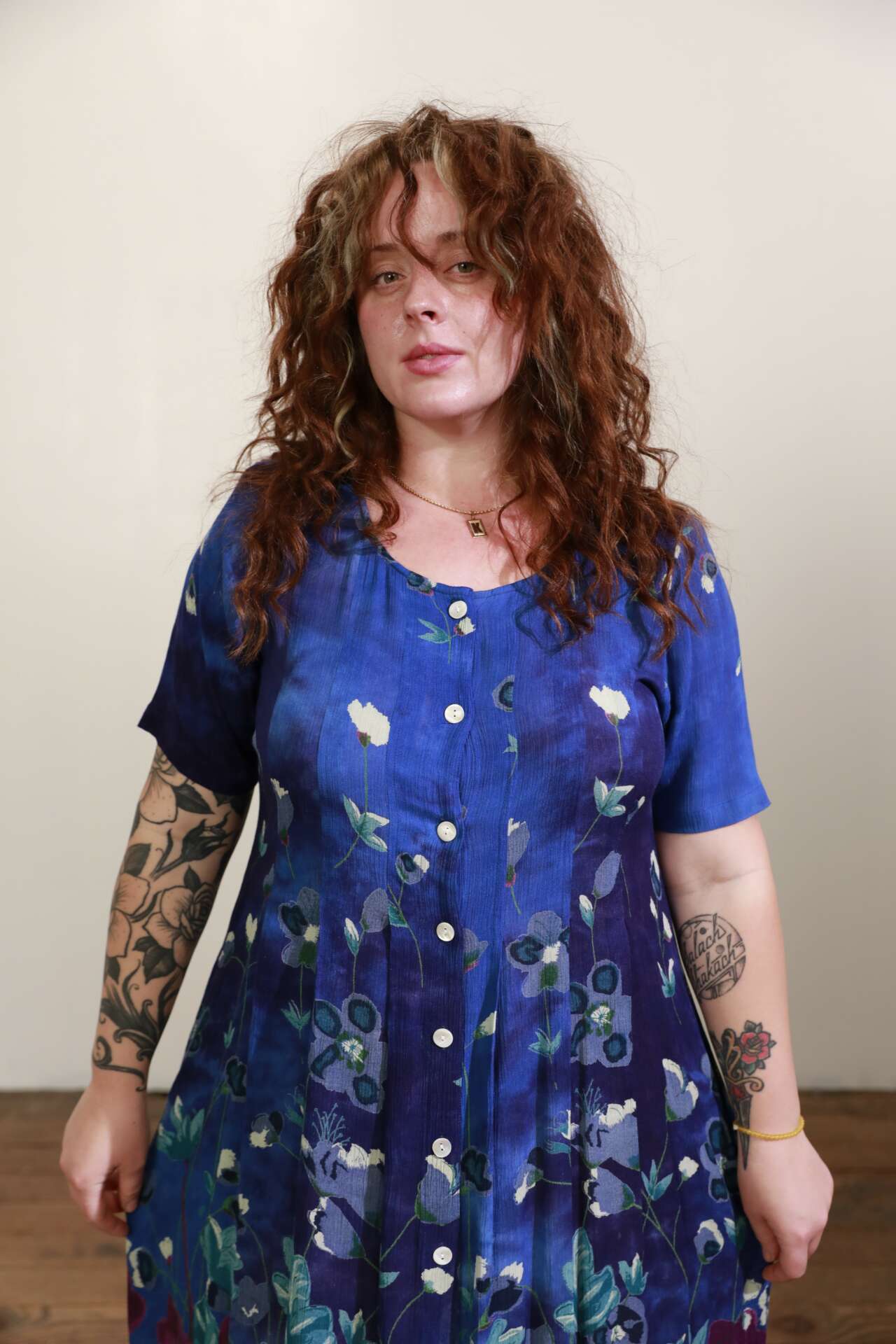
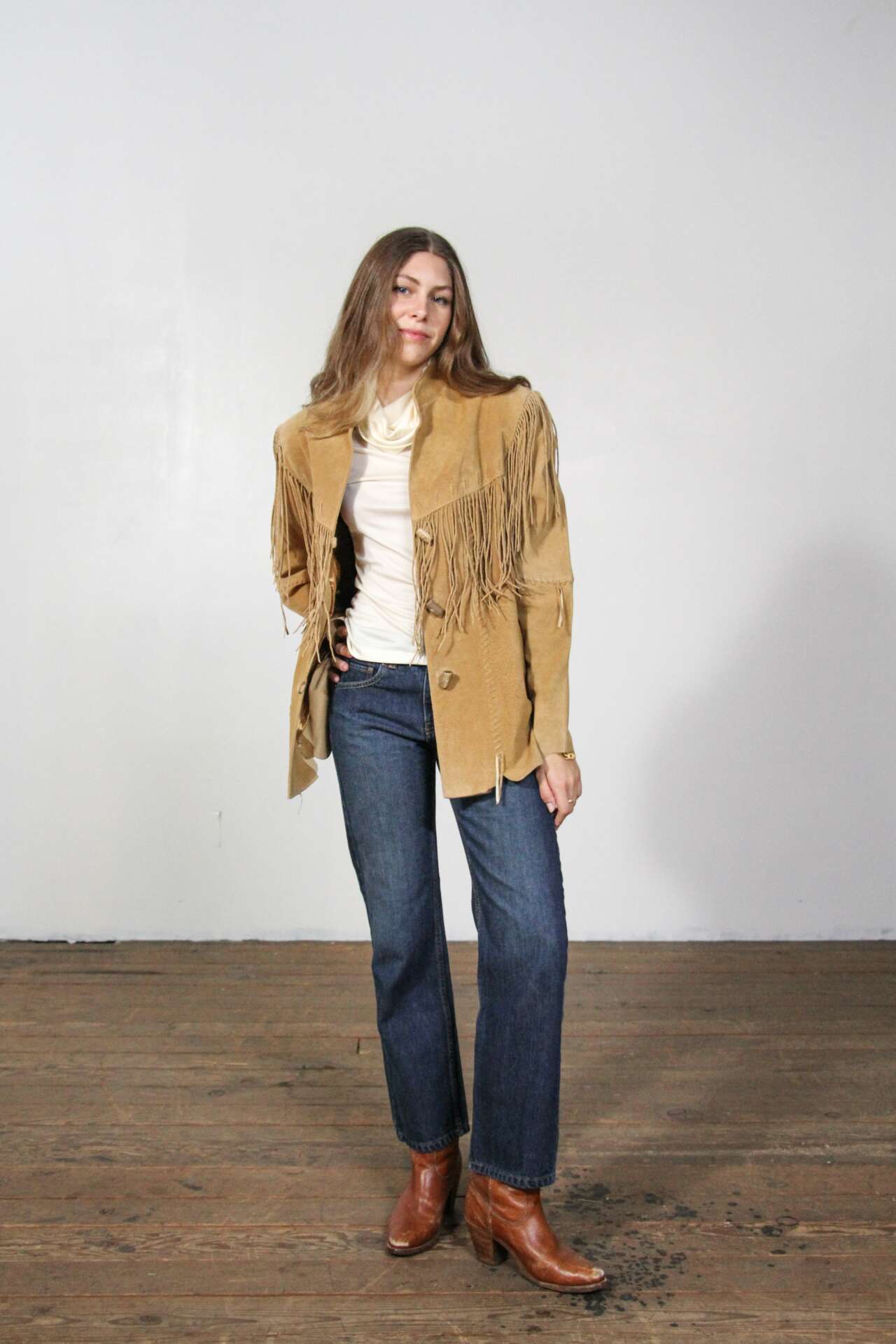
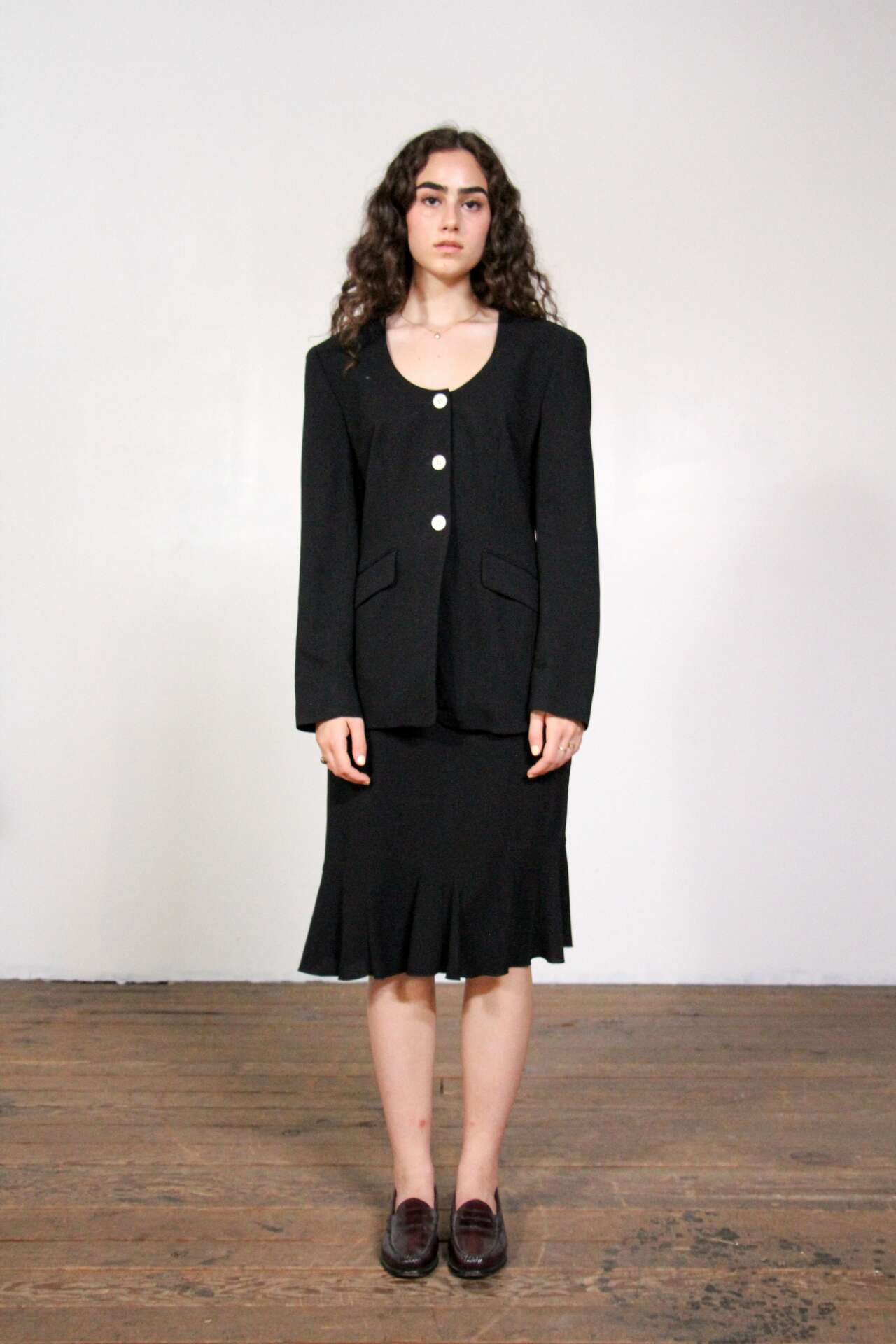
Awesome – so before we get into the rest of our questions, can you briefly introduce yourself to our readers.
I am a musician, singer-songwriter, educator and creative entrepreneur. When I’m not practicing guitar, writing a song or lesson planning for the combined junior high and high school I teach at – I spend time curating and listing vintage pieces on my online shop beyondheryears.co. I went into vintage reselling in college to help fund some personal expenses and a few of my artist projects. Growing up in the LA area and born to Central American immigrant parents, thrifting vintage, dead stock and second-hand pieces were a necessity, rather than the luxury it has become today. Finding and curating unique vintage pieces is a special trade which I have really been developing for years. I have experience in identifying vintage tags, quality craftsmanship, textiles and rare dead stock printed fabric. I curate my collections, style each piece and create look-books for the models and photographer to create inventory visuals. My collections are available for purchase on my website beyondheryears.co. I also love collaborating with other creatives, so much so that I created a series called “hercoolLAB” where I feature other female creatives and their businesses. You can learn more about my brand by checking out the page!
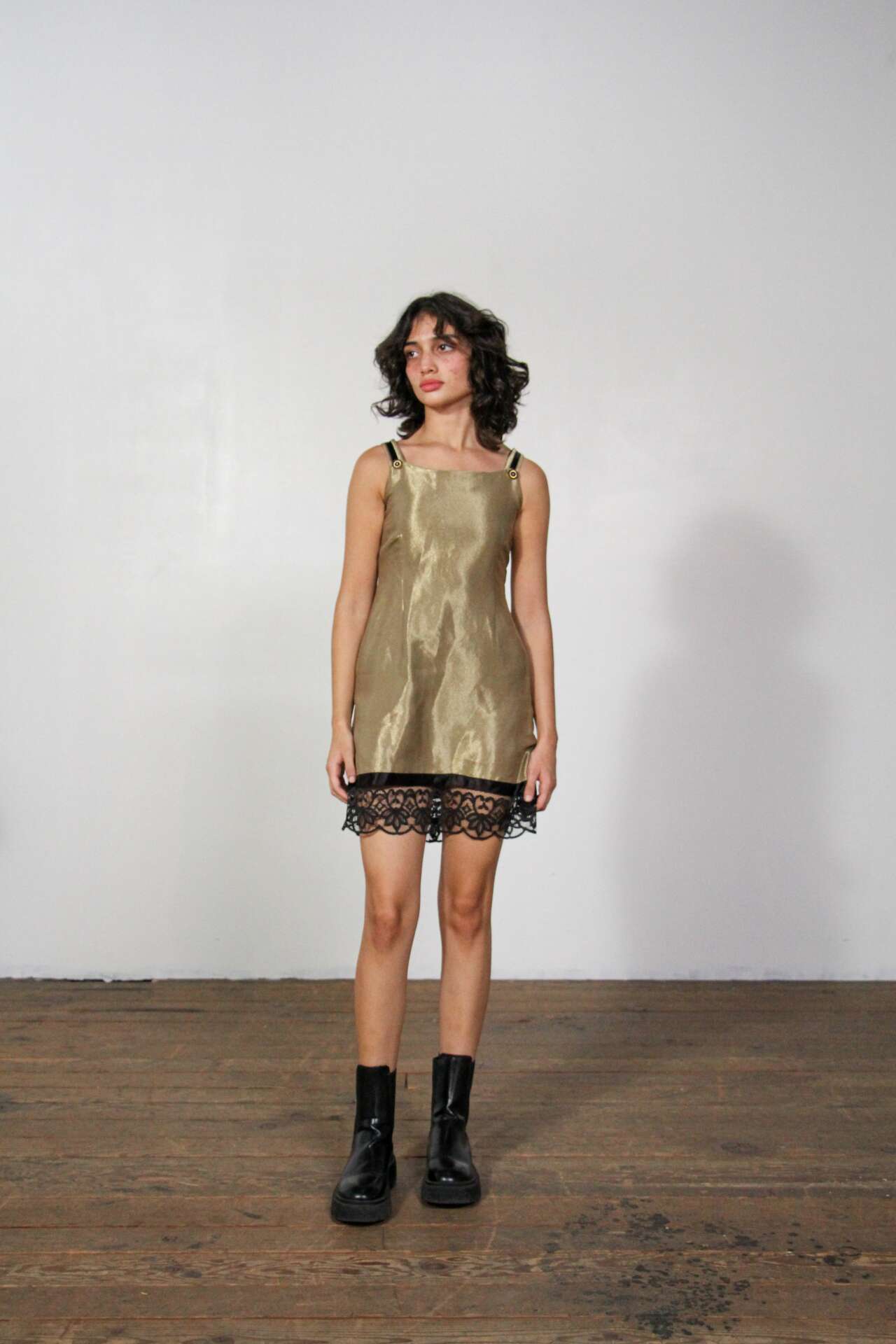
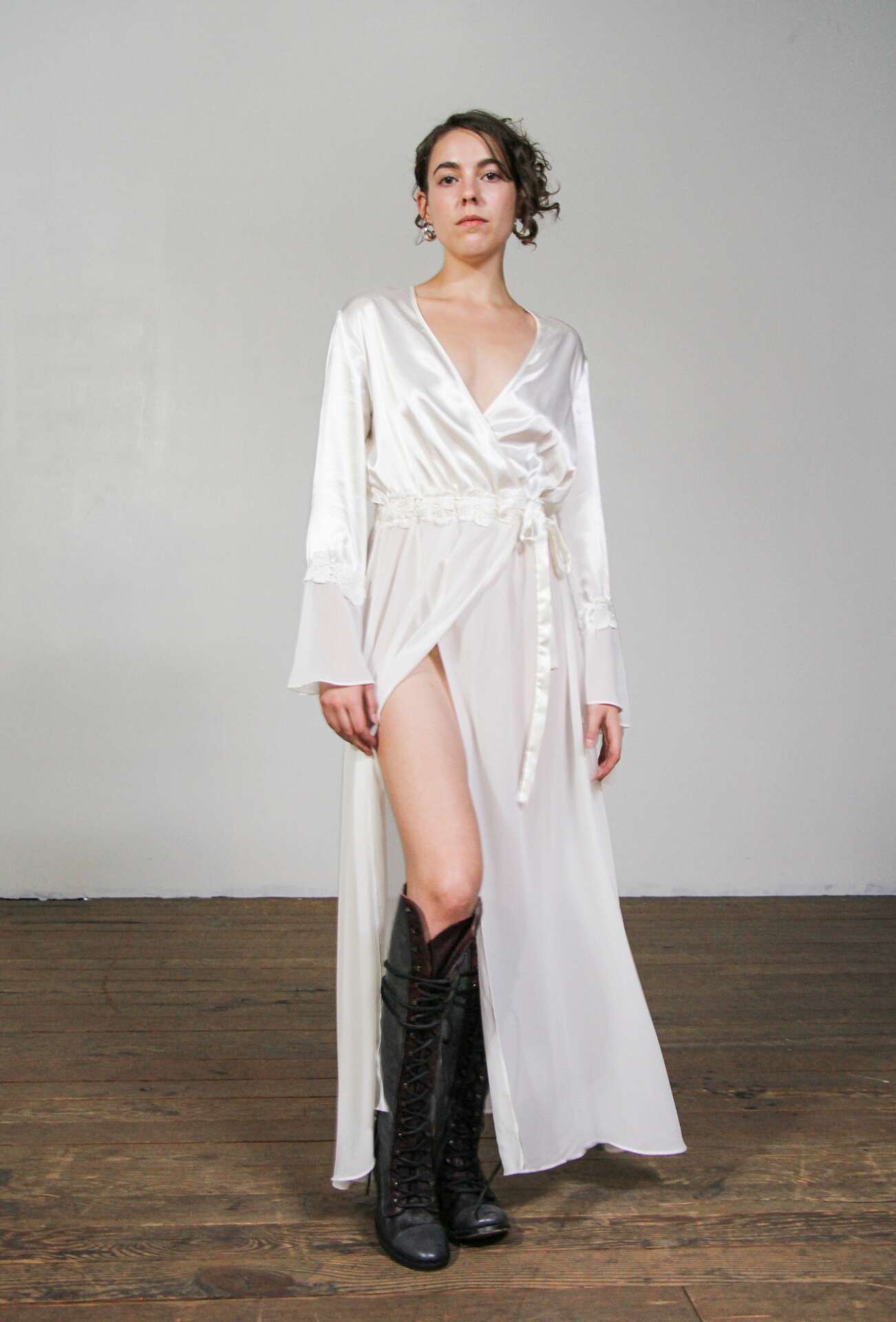
What can society do to ensure an environment that’s helpful to artists and creatives?
I remember having a discussion with a creative friend in college about this very topic. While creatives do have their own community and creative networks, we do not do a very good job of welcoming non-creatives and specialists into our world. Ideally, we should have an ecosystem that is interconnected with those who are not necessarily “creative,” but have much to offer in terms of sharing creative experiences. My friend shared with me the concept of forming relationships with those outside our creative fields. He mentioned how many of his performing opportunities came from those who were not even within the creative ecosystem.
Universities also do not do a great job of integrating us before we are out in the real world. After all, we are in segregated colleges and classrooms within the universities acquiring degrees that will further box us in upon graduation. During the course of our creative careers, we might have taken a course or two that was promoted as an interdisciplinary course – but was it really enough to equip us to continue those interactions with other disciplines in the real world?
In the early 20th century, an influential art and design movement called the Bauhaus arose in Germany, where they incorporated multiple fine arts as well as engineering and architectural students under the same roof. It became a major influence on various artistic disciplines, including architecture, industrial design, graphic design and fine arts. The movement aimed to provide a comprehensive and interdisciplinary education in the arts and technological fields to encourage an understanding and appreciation for each other. It would be enlightening if we could bring back a similar system of learning to our schools today – and if policy makers and school administrators cannot implement it, we need to find ways to self-educate and immerse ourselves into interdisciplinary learning environments, even if that means we need to create those spaces of learning ourselves.
I would conclude by saying the problem is not only with “society” as if we needed to address a third party, but we creatives and artists are a very part of society. The problem is we think we aren’t. Us creatives continue trying to separate ourselves from “normal” people and it has done more harm to us than we realize. Many of us idolize our ability to create as we are often praised for it. Furthermore, movie stars and rock stars only cemented our feeling right to self-glorification. So much so, we no longer look to “normal” people to appreciate our art. We have slogans such as “artists supporting artists,” but really, we need outsiders to support our work not only to have financial stability but also to have a greater influence on the culture. Understanding this takes immense humility, creatives are essentially the servants of society. This was significantly true during the Renaissance, the pinnacle of many art forms. Creatives were elevated to a new level of cultural and social importance at that time. Why? Did they accomplish this on their own? Did they only create the art they wanted to create? No, they were elevated in society through patronage. The patrons would engage artists to fulfill their commissions and as a result, together, they shaped the very culture of the renaissance period. Though, too many of us have a bitter taste in our mouth about the “sell out.” Selling out for money or personal advancement is what “normal” people must do every day to invest in their hobbies or adventures after work. I think so many young artists believe that they can be the exception to making it big only by creating the art they want to create. Whereas many artists didn’t receive a spotlight until many years of performing in a band that was not their own, writing songs for other artists, performing backup vocals, teaching math at a middle school or practicing law until they decided to reconnect with their instrument.
I believe non-creatives and specialists have much to contribute to the creative community, but we need to be willing to work together. I do believe through such diverse interconnections we can discover innovative ideas which can lead to new art and the discovery of new artists.
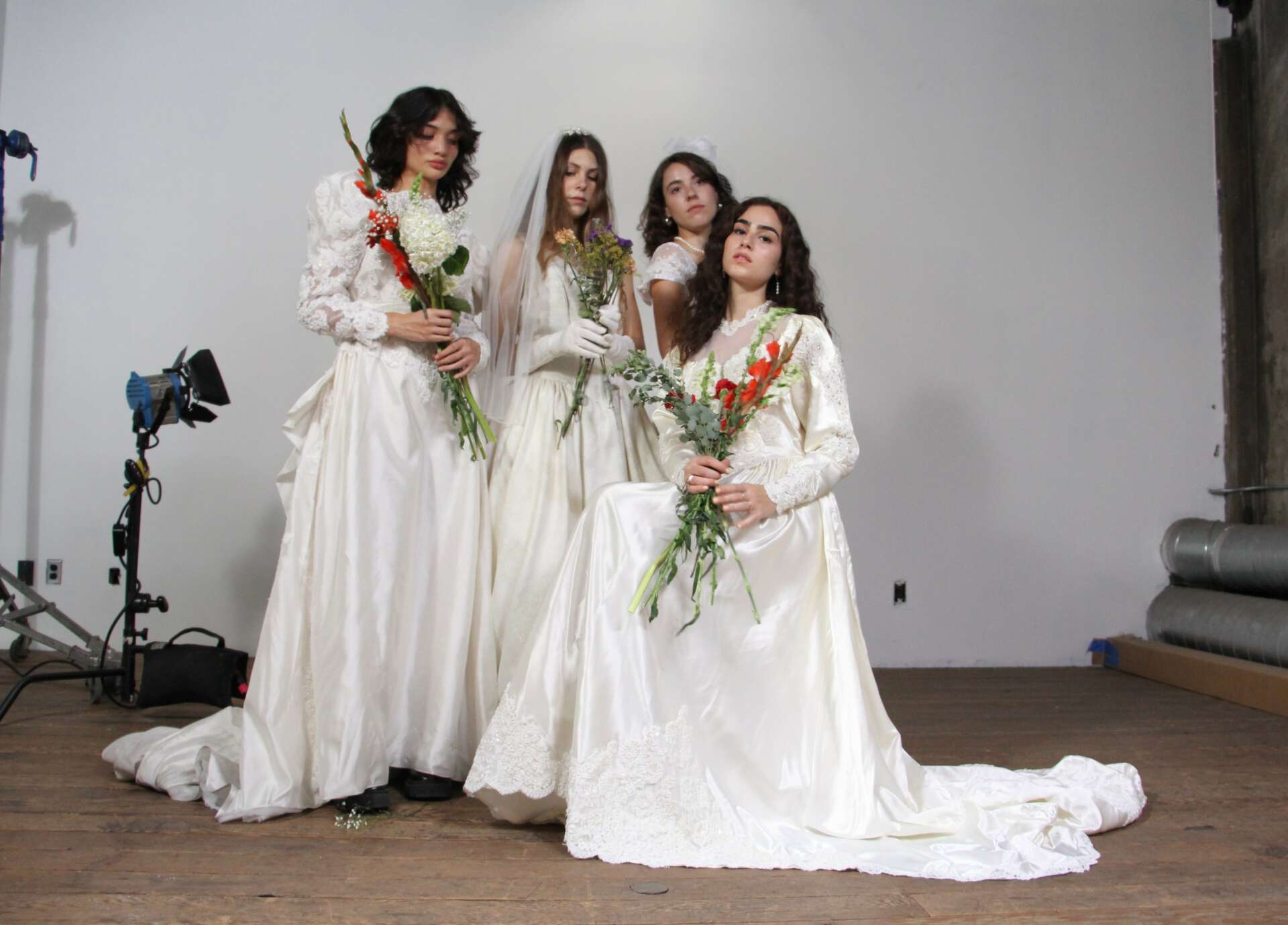
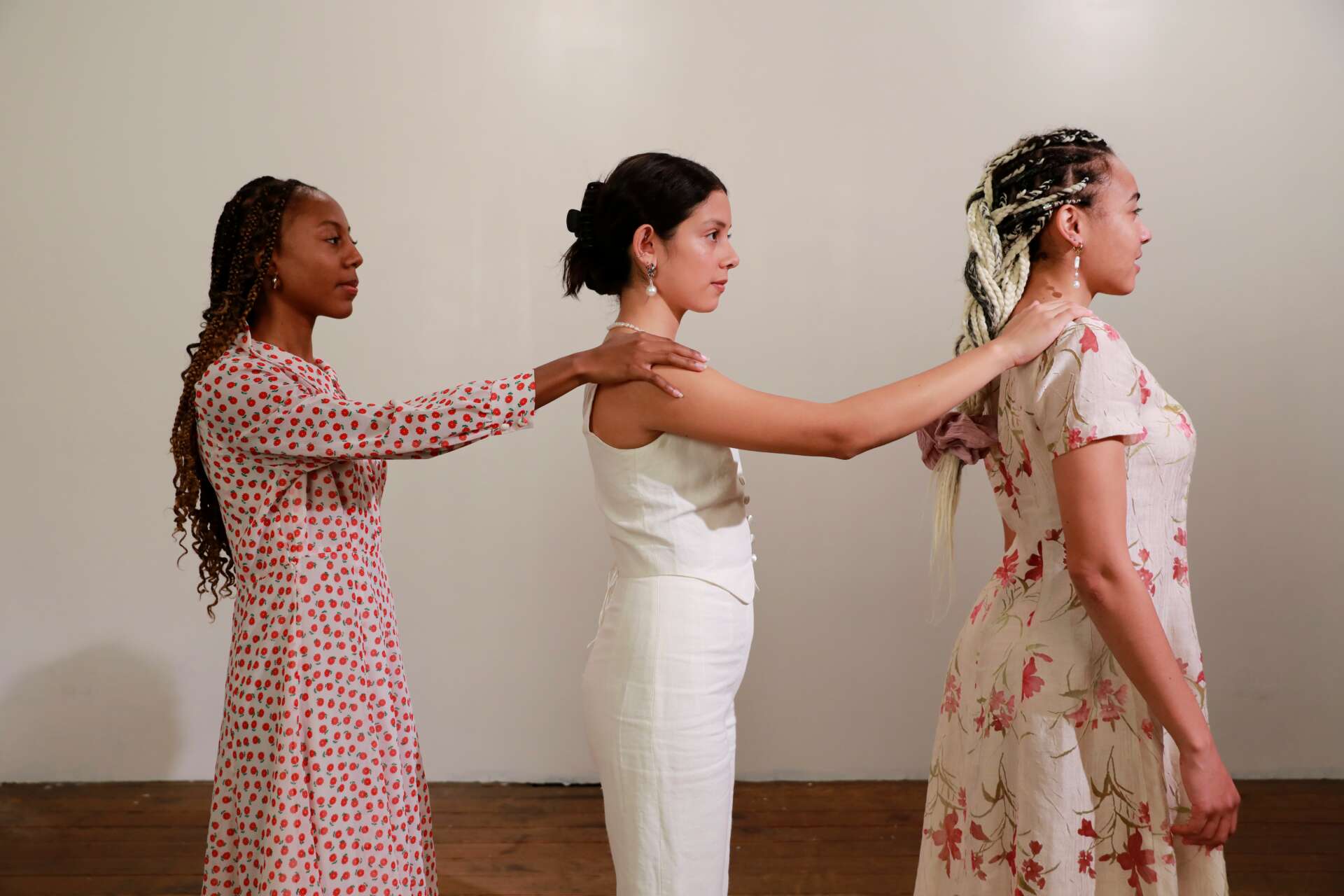
Do you think there is something that non-creatives might struggle to understand about your journey as a creative? Maybe you can shed some light?
I married a “non-creative”, so I have some insight into what he found difficult to understand about me. Many creatives put a halt to “normal” life in pursuit of their artistic dreams. We put off marriage, the baby, the 9-5 job, the house vs. small city apartment, dating a “normal” person because we want to date the artist who will understand us and elevate our status in the creative ecosystem. We are afraid once we enter that world we become “normal” and normal is boring (no offense). Once we become normal, we think there is hardly ever a chance now that we will ever accomplish making it as an artist. All this may very well be true for some, but not for all. Before I met my husband, I was ready to write as many songs as I could, perform at different venues, meet as many creative people as I could and travel as much as possible. All those endeavors seemed fruitless once I met my husband. I had to then decide if I was going to pass up a normal life to fulfill my creative career. Thankfully, I had people to look up to who warned me that the pursuit of a creative career was not going to bring all-time fulfillment: from the fine art professor who ended up divorced because they didn’t value time with their family to the well passed middle-aged man who married late in life and could not experience the joy of having children of their own. One of my favorite songs is “Dear Marie” by John Mayer. At the very end of the song Mayer repeats the lyrical lines, “Yeah I’ve got my dream, but you’ve got family/ Yeah I’ve got my dream but you’ve got family / Yeah I’ve got my dream but I guess it got away from me.” I didn’t want the family to get away from me. We do not need to sacrifice everything for the sake of art – you can have a life and use your life as inspiration to create art that resonates with others sharing in life’s story.
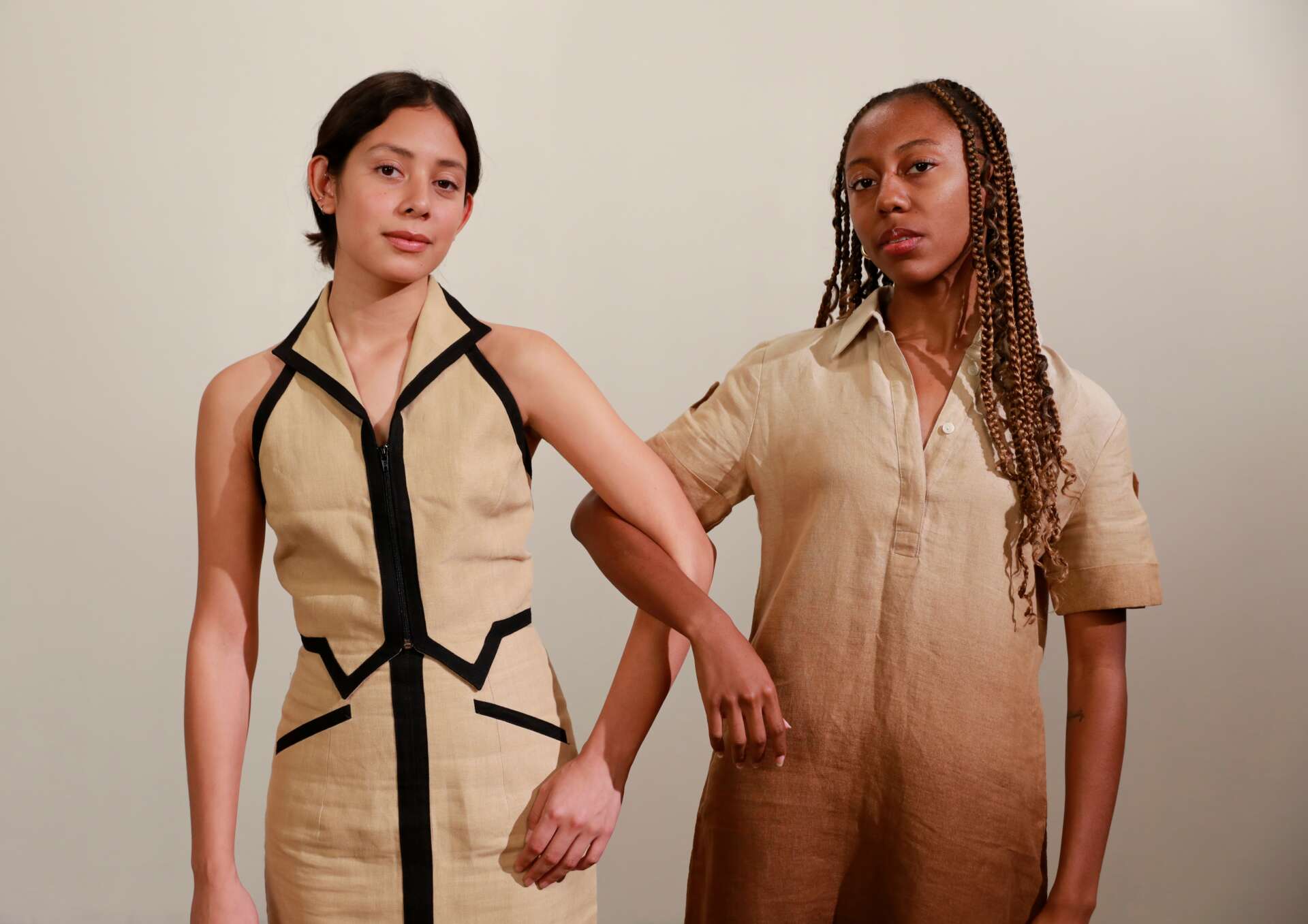
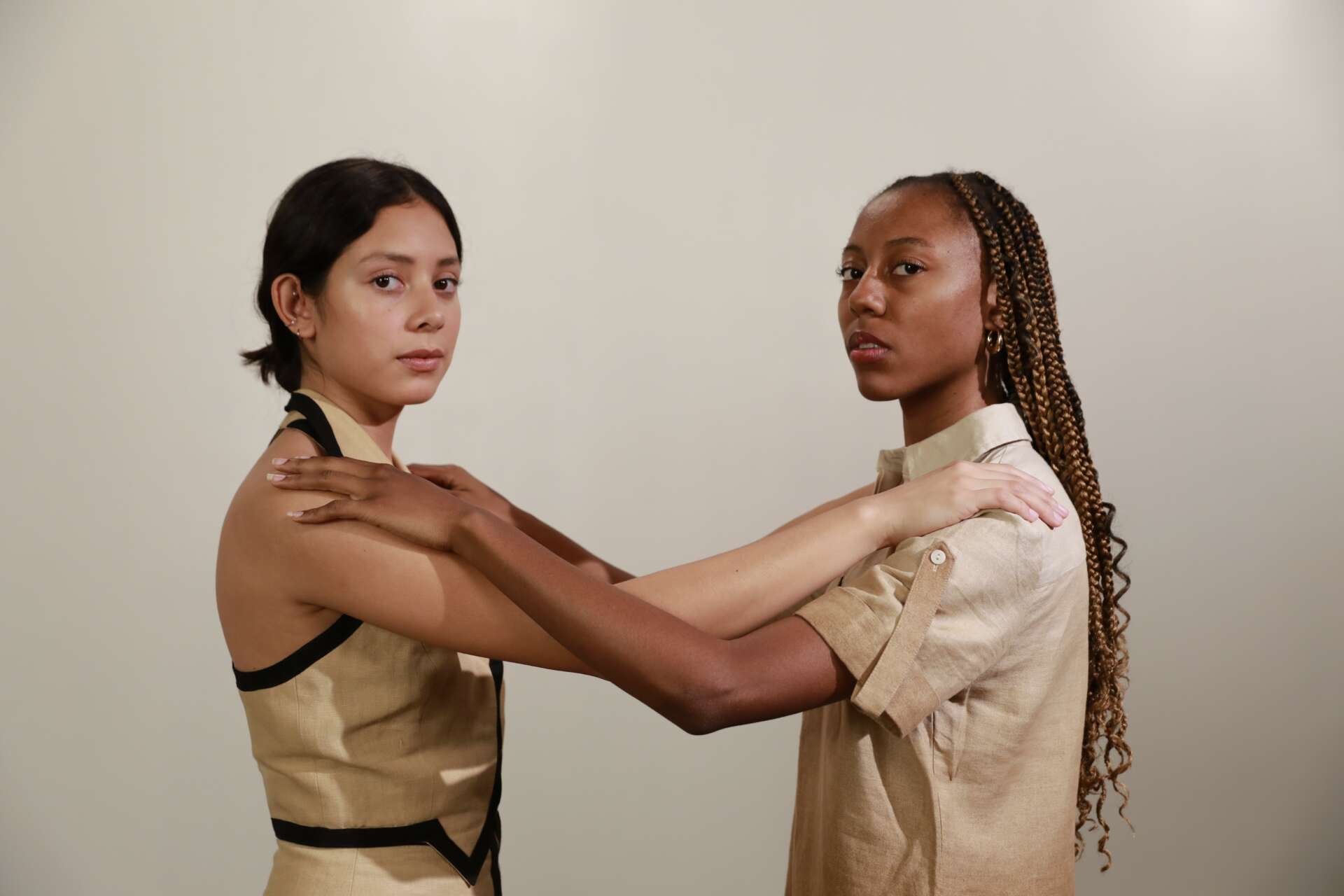
Contact Info:
- Website: beyondheryears.co ; hannayocute.com
- Instagram: https://www.instagram.com/beyondheryears.co ; https://www.instagram.com/hannayocute/?hl=en
- Facebook: https://www.facebook.com/profile.php?id=100068617666148 ; https://www.facebook.com/hannayocutemusic/
- Linkedin: https://www.linkedin.com/in/hanna-yocute-9896bb14a/
- Youtube: https://www.youtube.com/watch?v=TibLffiANjw
Image Credits
Photographed by @gabriela.freid, @_mikaelaelson, @jewelsluna and @danielfromyesterday Styled, curated by Hanna Yocute Creative Direction: Gabriela Freid, Mikaela Elson and Hanna Yocute Models: Talia Cancik, Lauren Hickey, Sofi Kaufman, Niaceli Vital, Kendra Caniggia, Trinity Hood, Ari Crisolo and Sarah Yocute
Location: Special Purpose Lighting @specialpurposelightingandgrip


